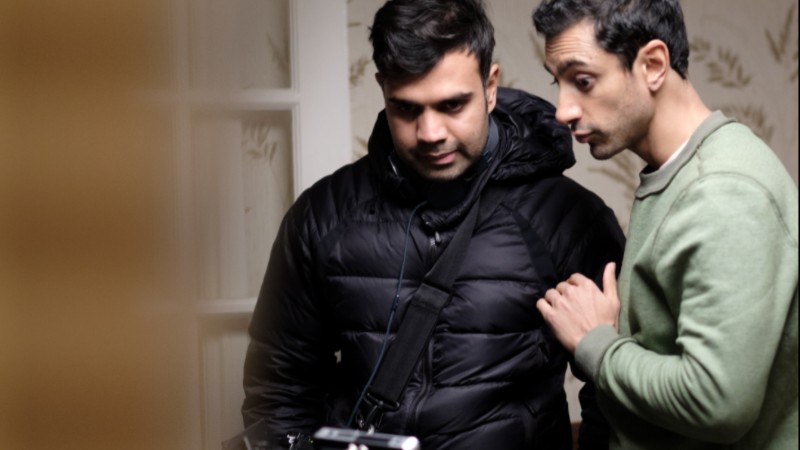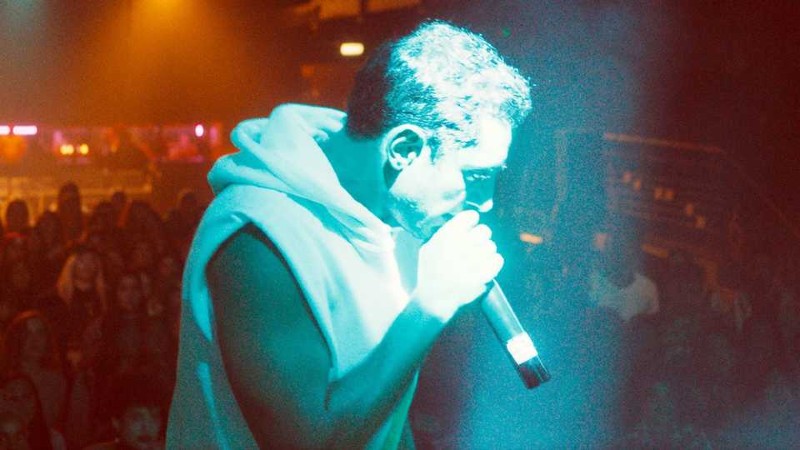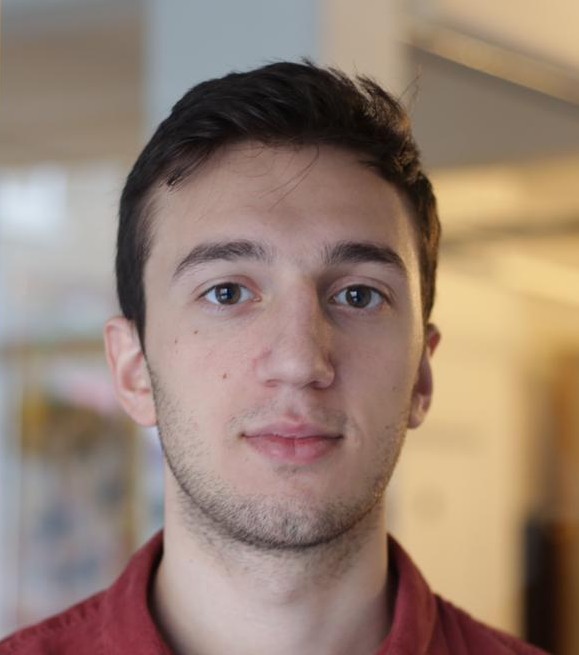




The British drama Mogul Mowgli has just premiered at the BFI London Film Festival, and BFI Distribution has picked up it up for a highly sough-after theatrical slot later this month, on October 30th. It tells the story of a British-Pakistani rapper about to embark on his world tour, when he’s tragically diagnosed with an autoimmune disease. The movie was directed and written by American-Pakistani helmer Bassam Tariq, and co-written and starred by British-Pakistani actor Rizwan Ahmed.
Dan Daniel sat down with Bassem in order to find out more about the origins of the film, his creative collaboration with the Ahmed (who happens to be a rapper, and all the songs in the movie), the learnt lessons and also a curious visual connection between Islam and the NHS!
…
.
Dan Daniel – Riz Ahmed has a writing credit on the film. How collaborative was the process of making Mogul Mowgli?
Bassam Tariq – Massively collaborative. We took every step together on building the character of Zed (Riz Ahmed). He’s an amalgamation of both him and I. And you know, the world that we built around Zed, so much of it was his family and my family and the conditions and everything – we took bits and pieces of both of our lives and that’s how we put it together.
DD – So how did it all begin? What made Riz and you decide that you could make this film?
BT – Yeah, that’s a good question! Cinereach are this incredible arts organisation who gave us some money – seed funding – to go to Pakistan to explore. So Riz and I went to Pakistan together and it was really our first time getting to know one another and seeing what we were about and how we can work together. And in that relationship, there in that trip, it cemented to me the importance of music in this film and how we could possibly use music to ground these experiences and build something that was unlike anything we had ever seen before. And I think I wanted to use the arc of music and Riz’s lyrical capacity because I think it’s quite exciting, so I wanted to push him musically. So much of this film was seeing how far I could push Riz into doing exciting and weird things!
DD – Were the lyrics penned by Riz in their entirety?
BT – Yeah! Riz would pen all the lyrics but he would always run them by me and I’d say, “I don’t know if that makes sense, maybe we could try it this way or this way etc.”. But it’s all Riz, sitting there in a room right before we’re about to film like “uh what if we say this? What if we say that?”. I also have to say that Adam Biskupski our editor did a phenomenal job of building out some of the lyrics because some things got really long, so we had to cut it down and work out, how we do make sure the lyrics are still making sense and we are cutting in a way that feels elegant and we are not losing the rhythms of the words, or the intensity?

DD – Your film is a great character study. Did you and Riz have any rehearsal time in order to build his performance?
BT – We had maybe a day or two in rehearsal, man. I was able to meet with all the actors one-on-one and tell them, “look, we are all going to be figuring this out on the day and we are bringing our best”, and I think that kind of worked for us, that element of throwing ourselves into it and not having too much preparation, so I think it was giving people the space to explore and bring their best, and it was exciting to see how people were really able to shine that way. There were a lot of meetings I had with Nabhaan Rizwan, the actor that plays RPG, and of course Riz and I were working non-stop on the project together, so everything was like a weird rehearsal when we were figuring things out.
DD – How long did it take from writing to shooting the film?
BT – No, not much. We were just writing and I had written a draft and people would come on board and we were like “oh no, we have to make this better and better”. We were building the tracks as the train was moving.
DD – You used a lot of greens and teal shades and the aspect ratio is unusual. Please tell us how you styled the film visuals.
BT – Yeah man, so green is a really important colour in the Islamic culture as well as the Persian and South Asian Pakistani heritage. And the thing about teal is that it’s the colour of the NHS, like gowns and outfits. It felt like we wanted colour to be in the film was very sparse but when there was colour, we really wanted it to hit you so it always quite earned. It was tough. We knew most of this film would take place in hospitals so we wanted to figure out a way to build up to the points of colour and the rest of the film to be quite neutralised. It’s a risky decision I would say, and it’s a bit hard to watch sometimes because we’ve purposefully made the film a bit messy and it’s tough thing to sometimes look at because you want to make things prettier as a filmmaker, right!. But you know you have to be in service of the story, and the story called for it to be shot this way and I felt that’s how we had to bring it to life.

DD – Have you gained any more insight or learnt something about about yourself while making this film?
BT – Oh man. I think every experience you have as a filmmaker is honing your instincts, helping you understand how to work with different kinds of people. You’re learning so many things along the way you know, somebody said to me once, “if you are not embarrassed of who you were a year ago, you’re not learning enough” and I find that to be so great because when I look back where I was last year, I feel so embarrassed versus where I am now, because it’s like “oh my god I can’t believe I did those things, and I think that’s a good way to exist, when you look back and you see all those things that you’ve learned.
I’d say the biggest thing I’m learning is how to really trust your instincts and to really guard them, and also bringing people in in a really respectful way and how you speak to them. If there’s one thing I’m really proud of that we did in this film was that we tried to create a very welcoming environment and we tried to be very kind and respectful to everybody in the crew.
They could’ve been on any other project but they chose to be on mine so it really meant a lot to me. I think also having a sense of gratitude in every step that I take when I work on this stuff. Because you never know if your stuff is gonna get made as a filmmaker. You don’t know. This could be my first and only film. And that’s what I have to learn to live with.
DD – I do hope we’ll see more films from you in the future!
BT – Thank you Dan, that means a lot to me.
The image at the top of this article is of Bassam Tariq, the one in the middle is of Tariq and Ahmed, and the one at the bottom is a film still of Ahmed





















